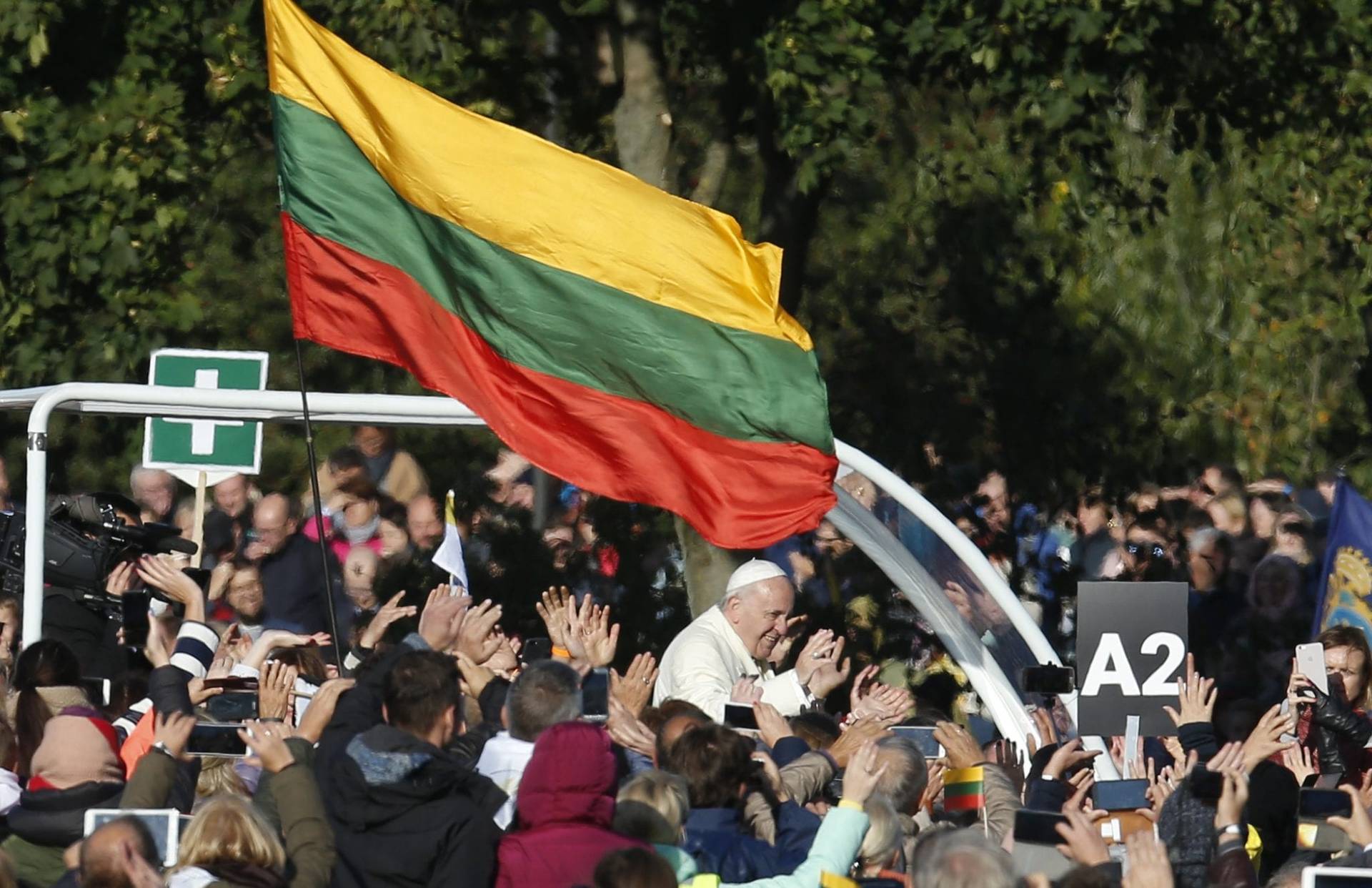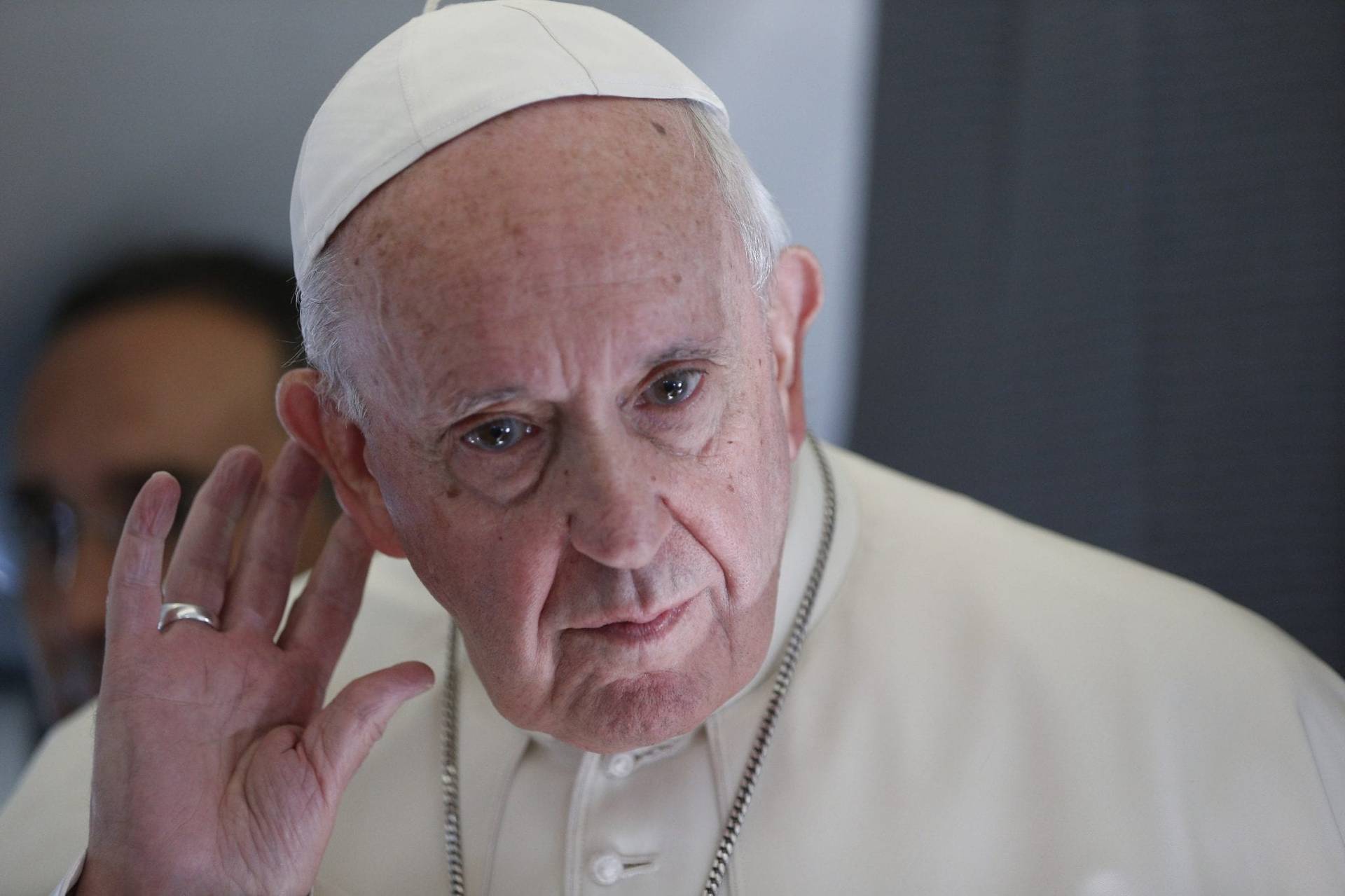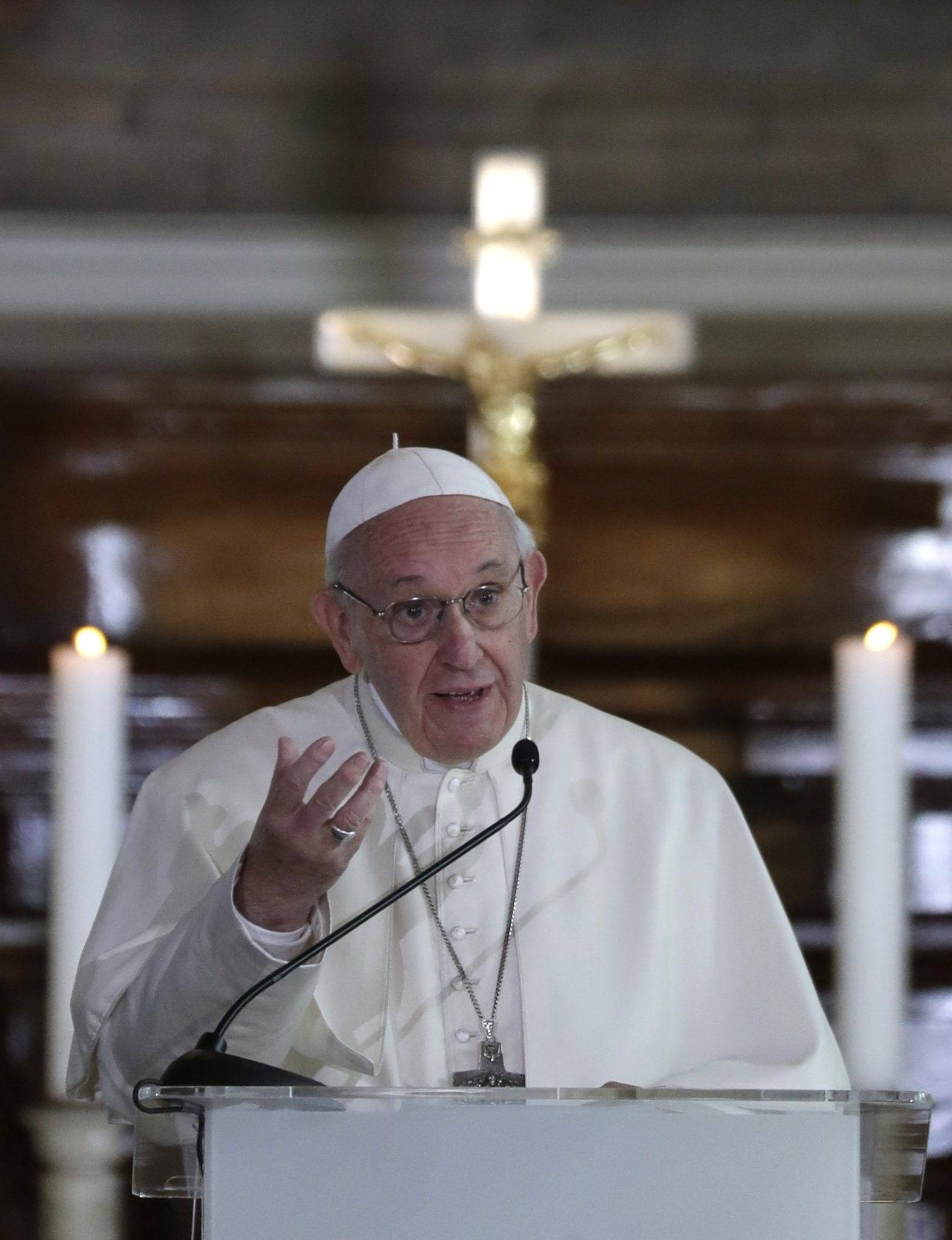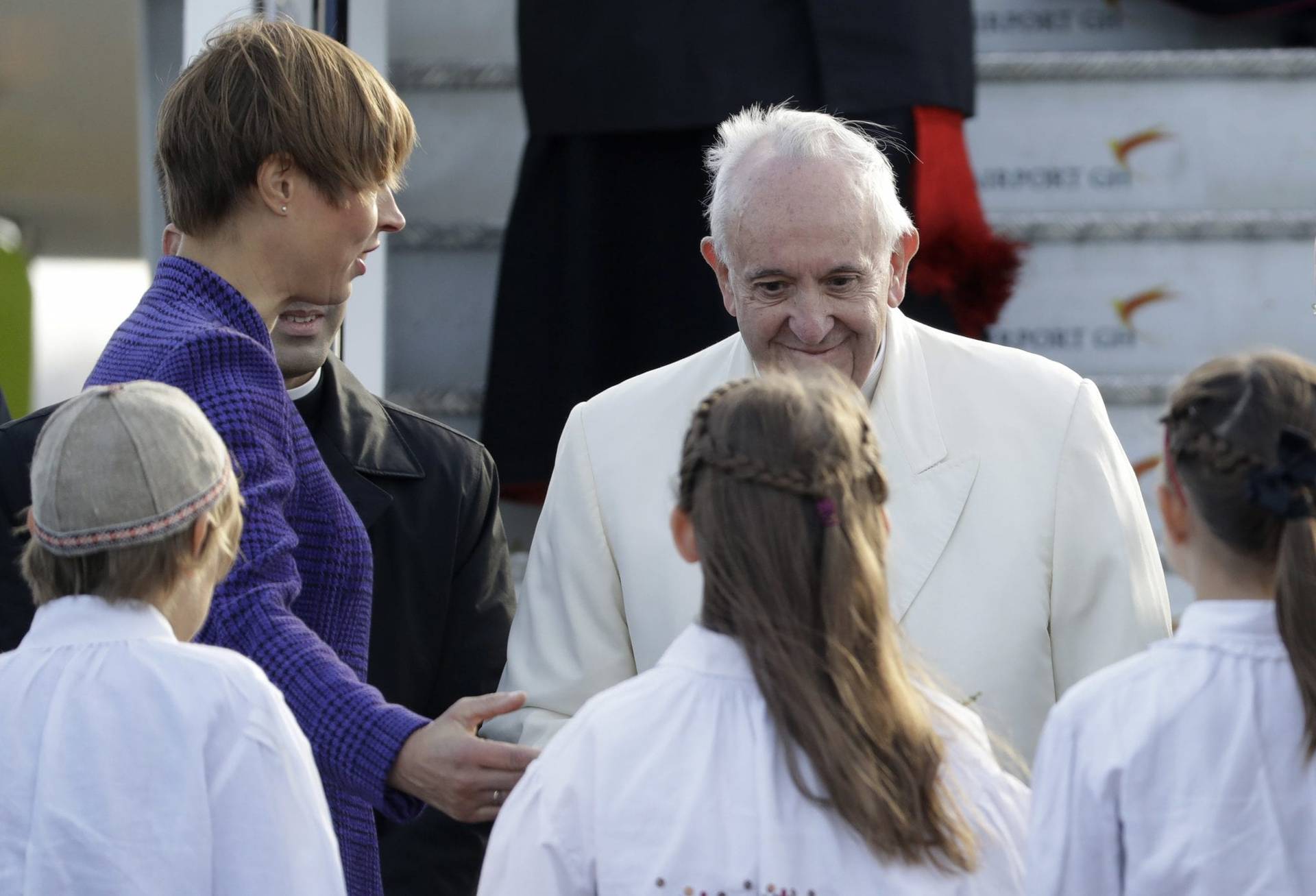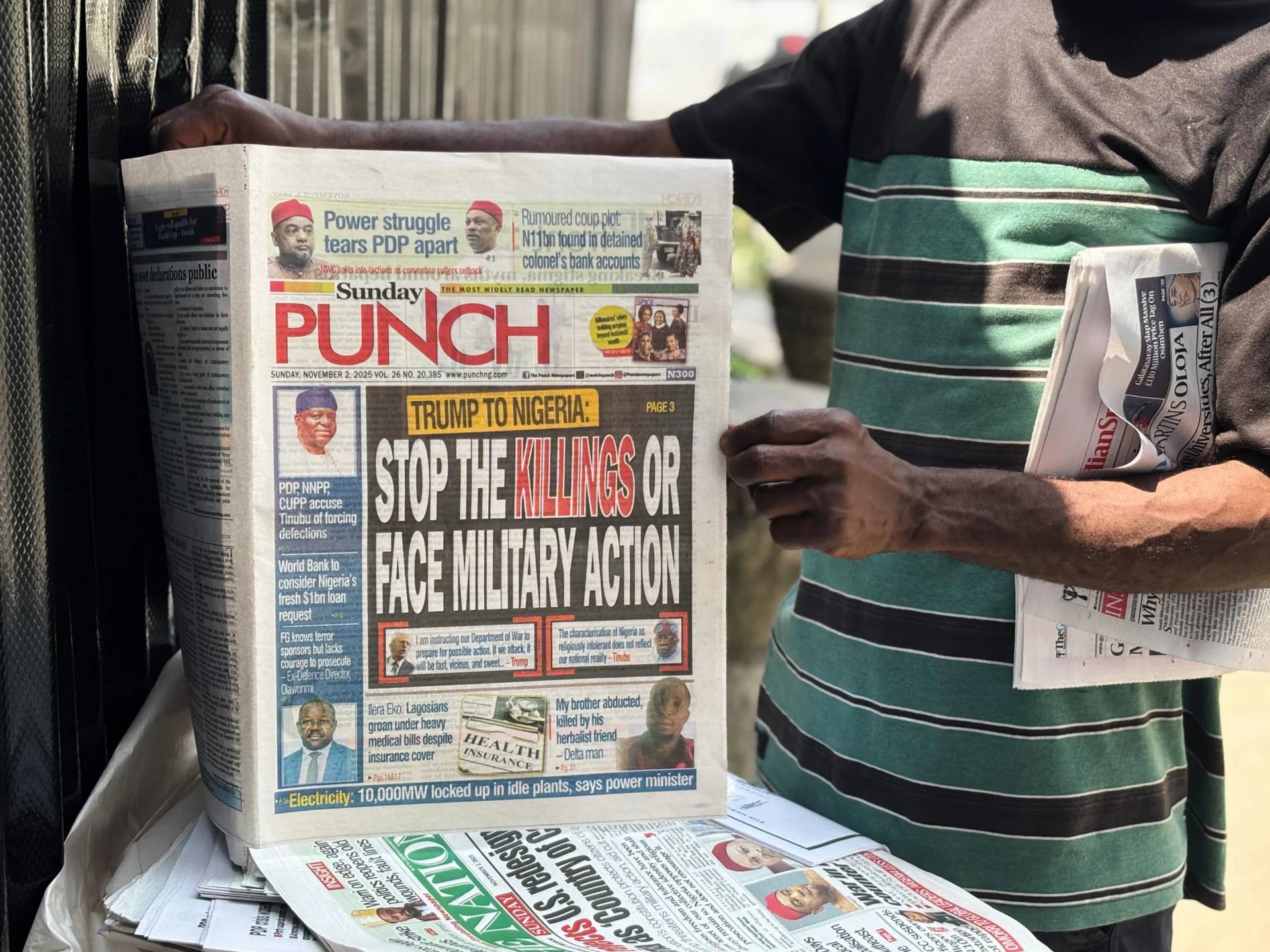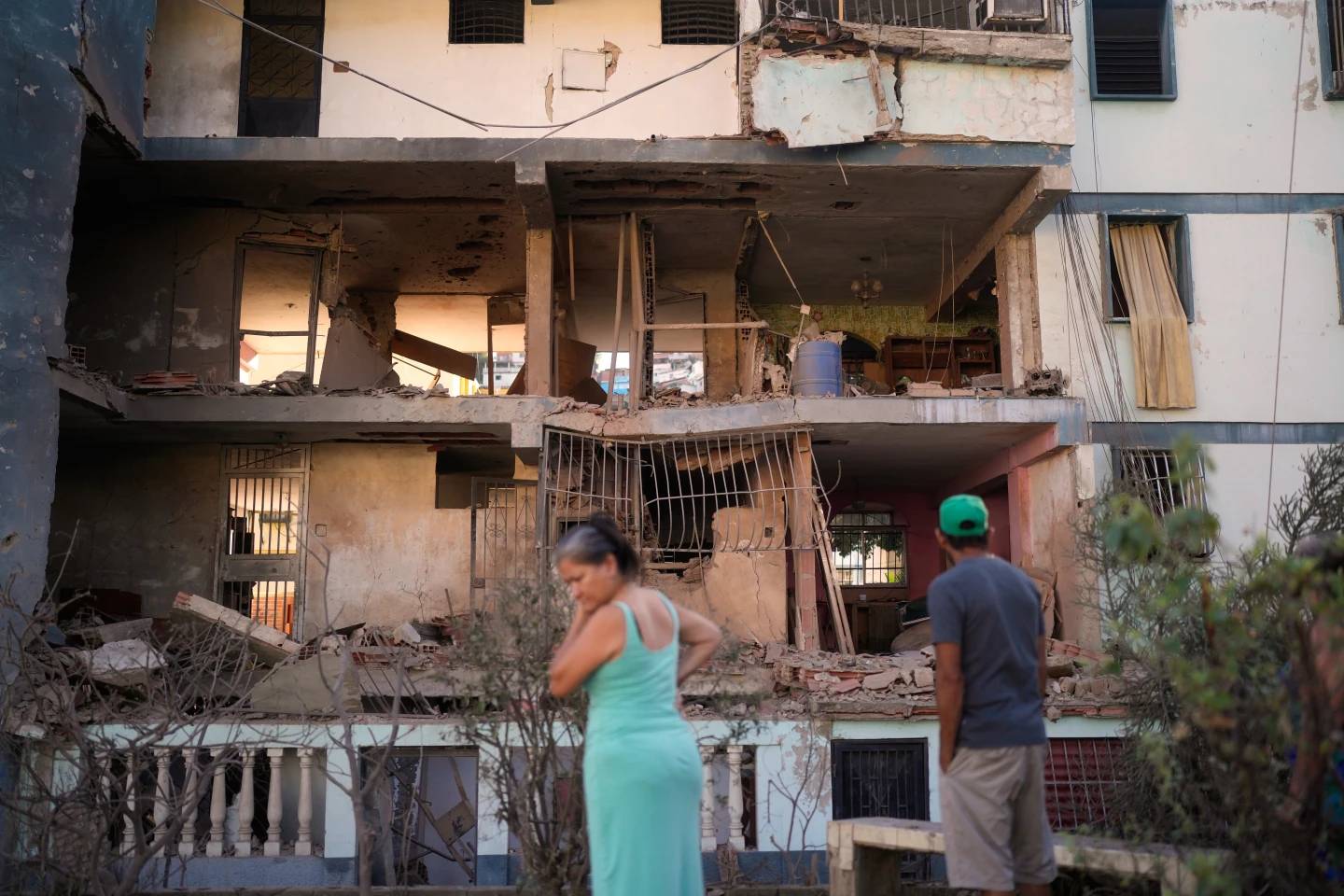KAUNAS, Lithuania – Speaking before a packed field in Kaunas on Sunday, Pope Francis called for the “globalization of solidarity” and condemned the thirst for power and glory, inviting faithful to reach out and welcome immigrants, minorities and all those left at life’s peripheries.
During Mass on Sep. 23, the pope spoke of “a Church on the move, unafraid to go out and get involved, even when it might seem that we pour ourselves out, lose ourselves, in going forth to the weak, the neglected, those dwelling at the margins of life.”
According to local organizers, over 100,000 people were present for the event and a cheerful crowd awaited Francis’ arrival in Kaunas, Lithuania’s second largest city, chanting hymns and holding flags and images of saints and the Virgin Mary.
It was 25 years ago that Pope John Paul II held Mass at the same park, commemorated by a large statue of the now-saint. When John Paul came, the Soviet troops had only recently left the Baltic state after years of oppression. Today the challenges are still there, as Lithuania attempts to establish itself as a democratic country in a European context.
“The Christian life always involves experiences of the cross; at times they can seem interminable,” Francis said during his homily. “Earlier generations still bear the scars of the period of the occupation, anguish at those who were deported, uncertainty about those who never returned, shame for those who were informers and traitors.”
Drawing from the day’s readings, the pope spoke about those who are persecuted recalling the painful memories of Lithuania’s recent past. He warned of the dangers of being absorbed in one’s own selfish pursuits instead of being concerned for those in need.
“The thirst for power and glory is the sign of those who fail to heal the memories of the past and, perhaps for that very reason, to take an active part in the tasks of the present,” he said.
“It is a fruitless and vain attitude that refuses to get involved in building the present, since it has lost contact with the struggles of our faithful people. We cannot be like those spiritual ‘sages’ who only judge from afar and chatter constantly about ‘what ought to be done,’” Francis added.
Instead, the pope called faithful to look for the “smallest, poorest in our midst,” and to welcome immigrants, ethnic minorities, the unemployed, the elderly and the lonely.
In a recurring theme from his Lithuanian stop during the Sept. 22-25 papal trip to the Baltic States, Francis mentioned the young people “who have lost their roots” and struggle to find a meaning in their lives. While inviting the Church to strive forward, the pope also offered words of caution.
“To go forth also means to halt at times, to set aside our worries and cares, and to notice, to listen to and to accompany those left on the roadside,” he said.
Near the altar where Pope Francis said Mass, an image of the Mother of God of Trakai, a revered icon showing Mary and the infant Jesus, and the relics of Blessed Teofilius Matulionis, a recently beatified Lithuanian priest and bishop who was persecuted under Soviet occupation, are the only decoration.
During the Angelus following Mass, Francis reiterated the message from his homily warning against the desire of imposing one’s will over others or considering oneself superior and entitled to more rights or privileges.
“The ungodly claim to believe that ‘power is the norm of justice.’ They dominate the weak, use their power to impose a way of thinking, an ideology, a prevailing mindset,” Francis said.
“They use violence or repression to subject those who simply by their honest, straightforward, hardworking and companionable everyday life show that a different kind of world, a different kind of society, is possible.”
“The ungodly are not content with doing anything they like, giving into their every whim; they do not want others, by doing good, to show them up for who they are,” he added. “In the ungodly, evil is always trying to destroy good.”
Francis said that Jesus’s antidote to this impulse is “to be servant to all,” venturing out to cater to the helpless, the poor and the furthest peripheries. “If power had to do with this, if we could allow the Gospel of Jesus Christ to reach the depths of our lives, then the ‘globalization of solidarity’ would be a reality,” he said.
Finally, Francis mentioned the genocide of the Jewish people in the Baltics and all over the world during World War II, dedicating a “special thought” to the community. In the afternoon, the pope will pray and lay flowers before the Monument to the Victims of the Ghetto in Vilnius, on the seventy-fifth anniversary of its destruction.
Francis called the occurrence “the climax of the killing of thousands of Jews that had started two years earlier,” and remembered how “the Jewish people suffered insults and cruel punishments.”
Between 1941 and 1944, Lithuania fell under Nazi occupation and the entire Jewish population in Kaunas was killed or deported. During that time more Jews were killed in Lithuania than in Germany.
“Let us think back on those times, and ask the Lord to give us the gift of discernment to detect in time any recurrence of that evil attitude, any whiff of it that can taint the heart of generations that did not experience those times and can sometimes be taken in by such siren songs,” Francis said.










